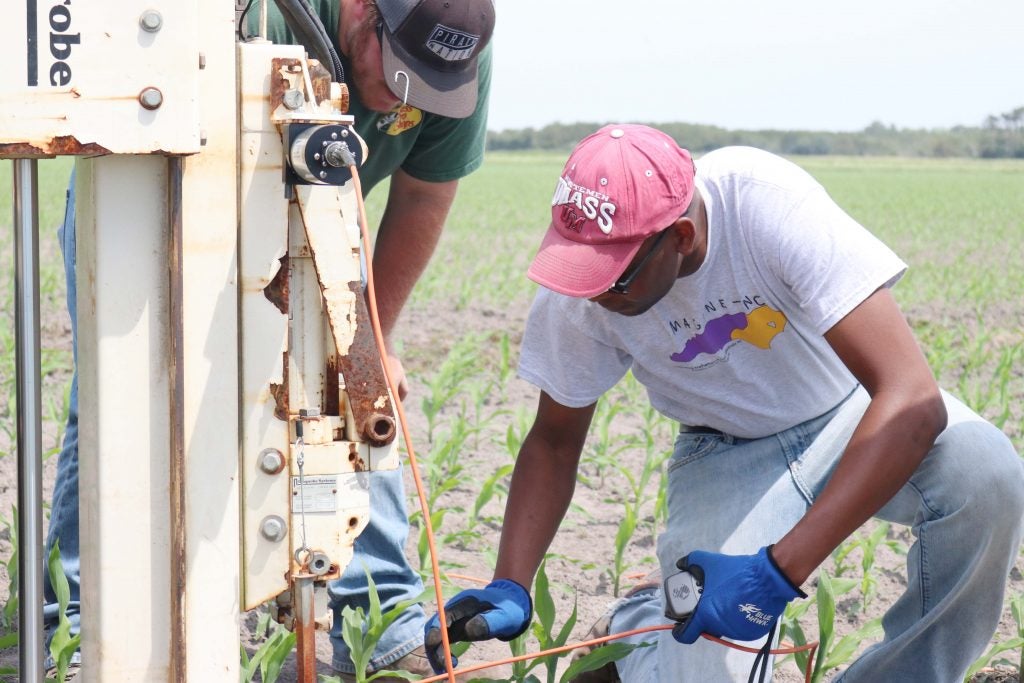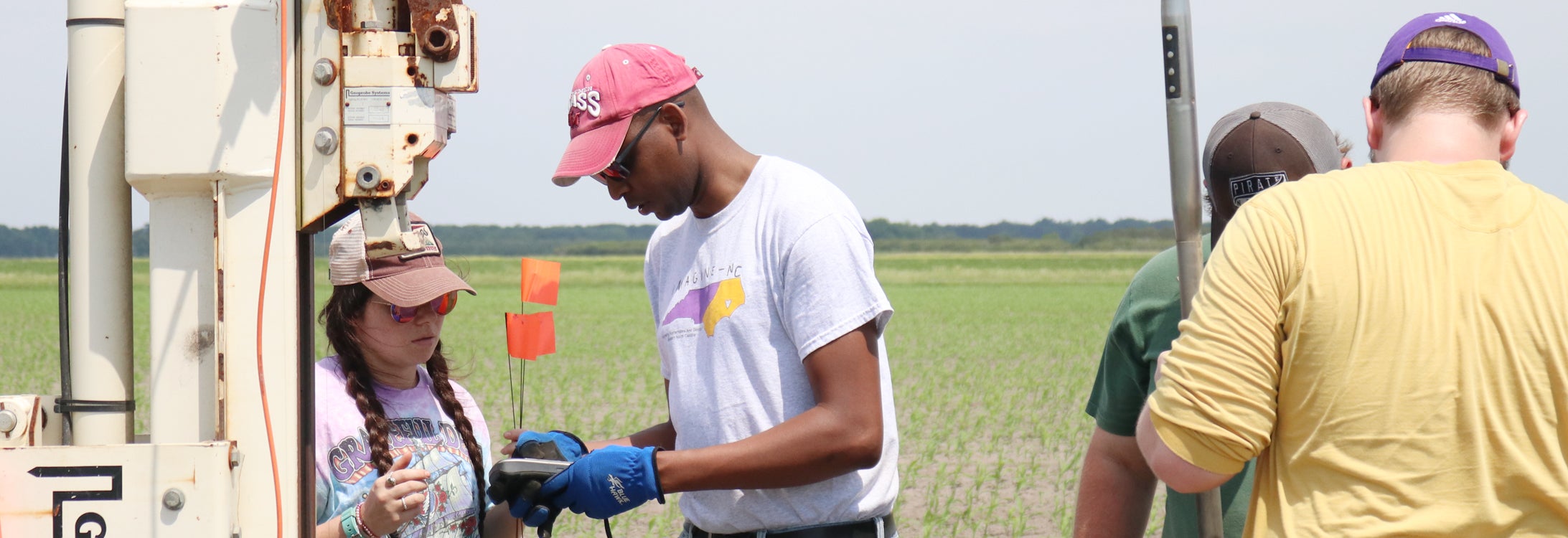INTERNATIONAL CONNECTION
ECU professor will test water quality in Zambia thanks to Fulbright program
An East Carolina University associate professor will travel to Zambia next year to assist in water quality testing of the African nation’s groundwater system.
Alex Manda, a hydrogeologist in the Thomas Harriot College of Arts and Sciences, was awarded a Fulbright U.S. Scholar Award in March. The program is the federal government’s flagship international educational exchange system designed to build lasting connections between the United States and foreign countries.
Manda – a native of Zambia – will spend eight months in the country studying the potential contamination of groundwater in the suburbs around the capital of Lusaka. Manda will assess the potential impacts of nitrates in untreated wastewater, while engaging with stakeholders to help them better understand potential sources of contamination. He will also evaluate groundwater management approaches that may address elevated nitrate concentrations.

Manda said that a key part of his experience in Zambia will include working with community partners and government leaders to educate the public about how to protect groundwater systems.
After visiting family members in April of last year, Manda said he felt like he was seeing the “wild west” of groundwater management. With new developments going up in the Lusaka suburbs, Manda said “every Jim and Jack” were drilling boreholes and wells to create water access with little professional oversight or thought toward the potential interactions with septic systems.
“People have been building out from the city center,” Manda said. “People are creating their own water resources because the government can’t provide resources that far out. They need water and sanitation, but the city just didn’t have the capacity to keep up with demand.”
Lusaka has become a popular urban settlement in Zambia, with a recorded population of 1.7 million during the 2010 census. That number is estimated to grow to more than 3 million by 2020, more than triple the size of Zambia’s second largest city of Kitwe.
“The Lusaka suburbs aren’t connected to the municipal sewer system,” Manda said. “Most use septic tank systems, and when there’s excess water – like during Zambia’s rainy season – that waste can move into the surrounding subsurface material. When septic systems are near wells that are not properly placed, it’s a cause for concern because residents could be drinking contaminated water.”
Manda said that his research team would test nitrate levels in water systems used by those living in Lusaka’s suburbs. The higher the level of nitrates in the water, the greater chance of possible contamination leading to waterborne diseases.
Manda hypothesizes that during the rainy season, fluids from septic tanks drain into the surrounding subsurface material, pushing wastewater deeper into the ground. While wastewater is sinking, the water table is rising due to excess rain, allowing the clean water to mix with contaminants.
“If the distance between the water table and individual septic systems is shorter than what it needs to be, that’s when you have the potential for bacteria, viruses and unwanted nutrients to enter the water system,” he said.
Crippling diseases
Kawawa Banda, one of Manda’s research colleagues from the University of Zambia’s Department of Geology, said that the interaction between groundwater and waste causes waterborne diseases.
Lusaka was left crippled in October 2017 when a cholera outbreak began that resulted in 98 deaths in the capital alone. A test of water sources in the region a year later found that the most commonly contaminated sources were shallow wells and boreholes.
“In some areas, we have very specific water quality issues, particularly with waterborne diseases like cholera and typhoid,” Banda said. “In the past, the capital has been paralyzed, and we’ve had to stop everything and try to contain outbreaks. It’s great that people are seeing the benefits of groundwater, but we do not have the services and infrastructure in place to keep up with the amount of development happening around Lusaka.”
The country contained a brief cholera outbreak that saw seven cases of the illness in January and February.
Manda said that part of his work in Zambia would focus on public outreach, both for the general public and for the country’s Environmental Management Agency and Water Resources Management Authority.
“People have more information at their fingertips, but sometimes that information is the wrong information,” Manda said. “In North Carolina, I’ve worked with municipalities, town managers, mayors and government agencies to educate them on the role they play in taking care of our water system. We want to be able to do the same in Zambia and really engage the community so they have the knowledge to keep their water systems clean and healthy.”
Building relationships
Manda, who enters his 10th year at ECU this fall, said he hopes his research will help him uphold the Fulbright program’s goals of building relationships and leaders.
“One of the things I like about my research is that it’s practical,” Manda said. “I enjoy engaging with others and it will be interesting to see the differences in how the U.S. and Zambia regulate their water.”
Banda said he’s hoping Manda will have time to interact with his students.
“The tools Alex will share are really important for us in this exchange,” Banda said. “Our students could benefit from seeing a different academic culture, as well. We hope we’re able to teach him a lot about the work we’re doing over here, but it will be great to learn from his experiences as well.”
Manda said he’s also interested in developing a study abroad program in Zambia and will use his time in the country to scout locations and potential research partners.
“ECU continues to grow its community engagement efforts,” Manda said. “This is a natural progression of our goals. I may not be directly affecting the Greenville community, but we’re helping the international community. We’re called to serve, whether it’s 10 miles from home or 7,000 miles away from home.”
Learn more about Manda’s research online as well as the Fulbright U.S. Scholar Program and the University of Zambia.
